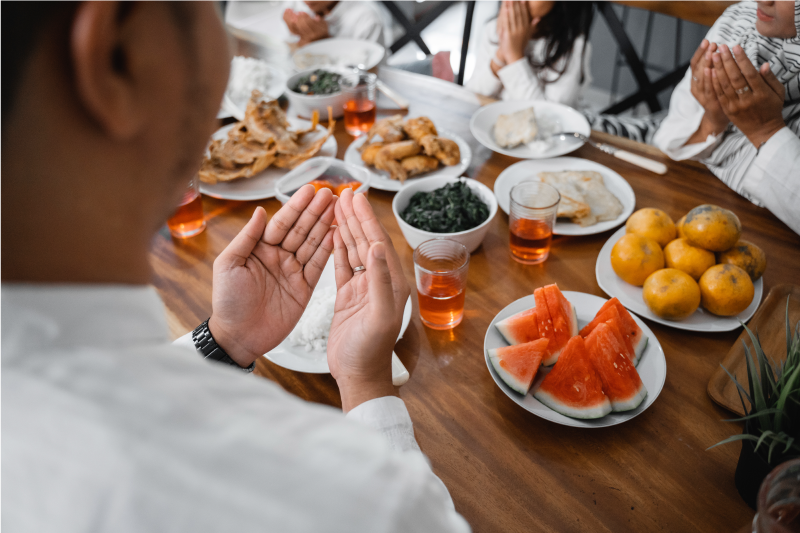
Ramadan is a very important month of the year for Muslims. During the entire month of Ramadan, Muslims fast every day from dawn to sunset. It is meant to be a time of spiritual discipline reflection, gratitude while connecting with family and friends.
While fasting has been known to have many health benefits, you might feel low on energy at times. As your body adjusts to the sudden changes in lifestyle and daily eating habits, here’s how to stay energized during the day.
Choose a sustaining sahur meal:
Do not skip your sahur meal and try to have it as close to sunrise to maintain your energy level throughout the day. Eat foods that are rich in fiber such as whole wheat breads, rice, pasta, potatoes, and whole wheat grains as they give you energy that can last. They are also rich in vitamin B which helps to release the energy from food. Protein-rich food with complex carbohydrates will also keep you feeling full for longer.
Stay on gentle mode:
As your body adapts to fasting during the first few days, you may see a drop in your energy levels. Instead of your usual physical fitness routines, keep it to simple stretching, a short walk or simple breathing exercises to help you feel rejuvenated.
Get enough rest:

Try to get at least 8 hours of sleep. If not, try having power naps of 15 to 20 minutes to stay energized.
Keep cool:
With temperatures soaring during this time, it is important to stay cool with fans and air conditioners. Try to stay out of the sun if possible.
Be conscious of portions:
Don’t gobble up your food during iftar when you are breaking fast. Instead, aim for a smaller portion and wait for 10 minutes before continuing again. This will help you feel more energetic and alert after iftar.
Stay hydrated the right way:

Although you need to drink at least eight glasses of water even when you are fasting, it is not advisable to drink large quantities of water all at once. Eat fresh fruits and vegetables as they are rich in water and fiber which helps to reduce thirst.
Reduce your caffeinated beverages:
Between iftar and sahur, limit your intake of caffeinated drinks as it promotes dependence during the fasting month and cause sleep disruption.
Stand up and start moving:
Feeling low in energy while fasting? Don’t blame it on the lack of food but lack of movement instead. Get up, take a walk or do a mini workout to stretch and feel energized.
After Ramadan is over, it will take some time to resume your regular eating habits as your body may have become accustomed to fasting. Slowly adjust and ensure you stay hydrated throughout the day.
